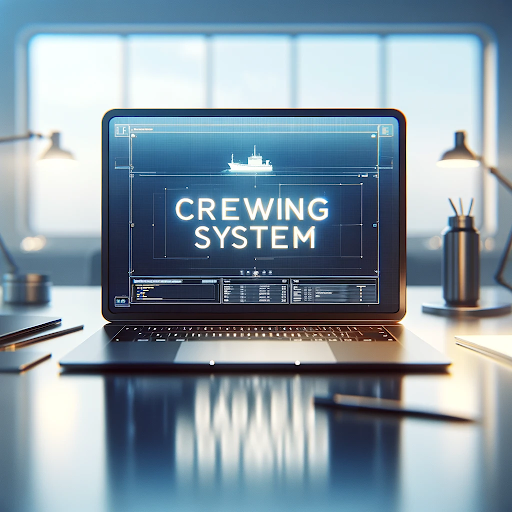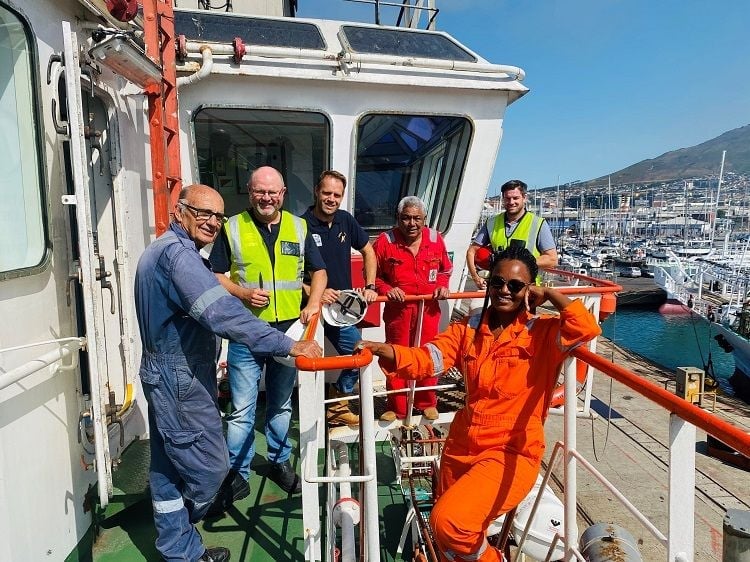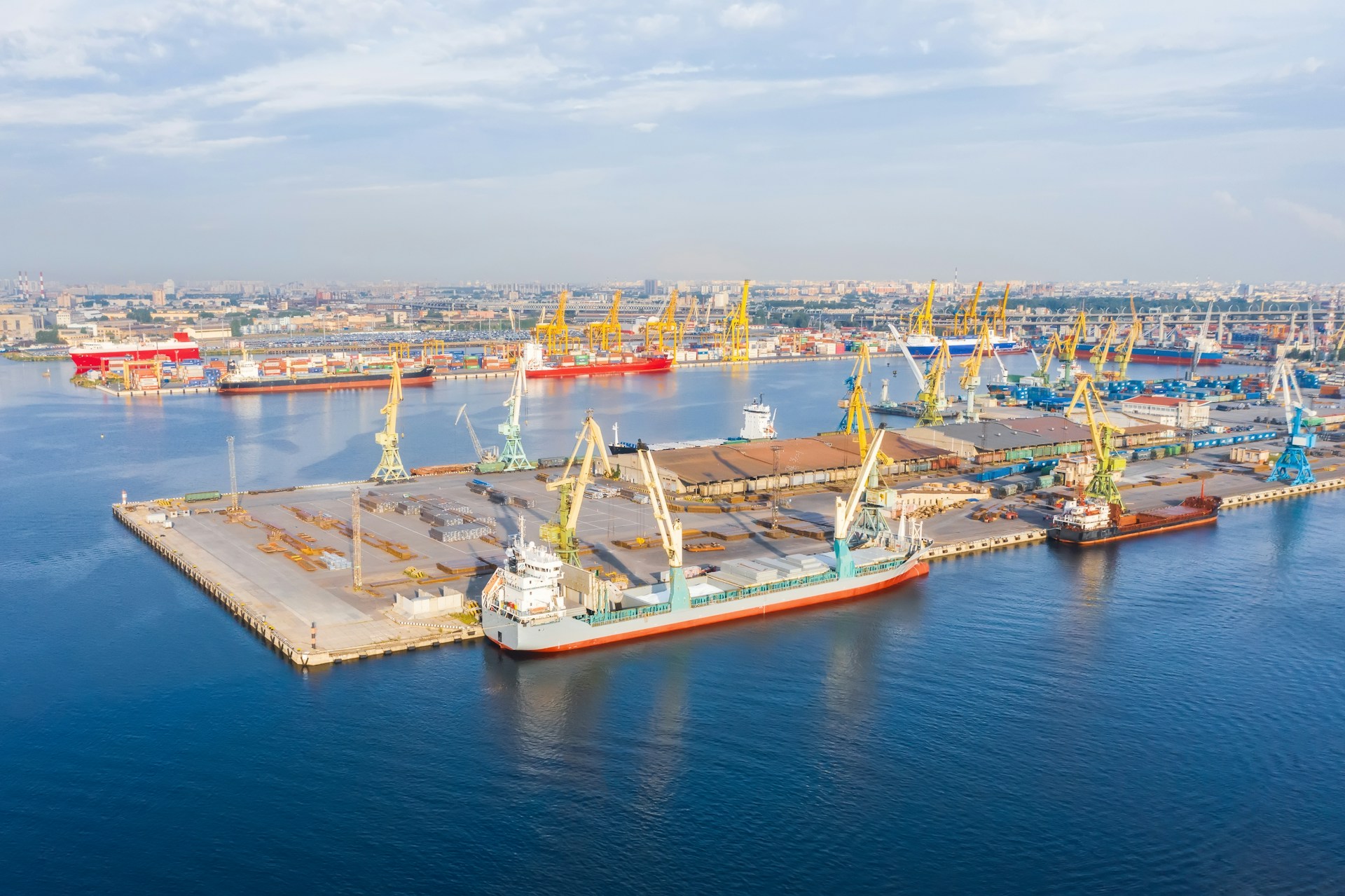How to Ensure Your Shipping Company is More Sustainable
May 07, 2024 · 9 mins read ·
Maritime Industry
Global warming, plastics in oceans, climate change and other eco concerns are never far from the news. All sectors, as well as governments, corporations and individuals, contribute to the problems facing our planet - and all of us have a responsibility for doing our best to mitigate that contribution.
Which brings us to the maritime industry. We all know that shipping plays a crucial role in global trade and commerce, but it also has a significant impact on the environment. As concerns about climate change and environmental sustainability continue to grow, there is an increasing focus on adopting eco-friendly practices and green initiatives in maritime and logistics.
In this blog post we are going to explore the importance of sustainable shipping, talk about some environmental practices that companies in the sector can adopt, and highlight some green initiatives that are transforming the industry.
Are you ready to talk about all things green - and blue?
The importance of sustainable shipping
There’s little to no point trying to convince someone who doesn’t really care about sustainability if you can’t impress upon them its importance. Therefore, it’s just as crucial to talk about why sustainable shipping is so important as well as floating ideas for change. No pun intended!
Shipping accounts for a significant portion of global carbon emissions, air pollution, and marine pollution. As the demand for maritime transportation continues to rise, it is essential to minimize the environmental impact of shipping activities and promote sustainable practices.
Sustainable shipping not only helps reduce greenhouse gas emissions and protects marine ecosystems but it also enhances operational efficiency, reduces operating costs, and improves regulatory compliance for shipping companies.

Something that even the most skeptical of bosses would have to admit isn’t such a bad knock on effect!
Environmental practices for commercial shipping companies
Shipowners, ship managers and ship operators play a vital role in implementing green policies and procedures and promoting sustainability aboard their fleet. Here are some key environmental practices that companies in the maritime industry can look at adopting, if they’re not already, to minimize the environmental impact of shipping operations.
Fuel efficiency measures
Implement fuel-efficient navigation practices, such as optimizing speed and route planning, reducing idle time, and adopting slow steaming techniques to minimize fuel consumption and emissions.
Energy conservation
Implement energy conservation tactics onboard by optimizing lighting, heating, and ventilation systems, using energy-efficient appliances and equipment, and reducing unnecessary energy consumption.
Waste management
Ensure that waste materials onboard are properly segregated, stored, and disposed of in accordance with international regulations and best practices. Minimize waste generation by implementing recycling and waste reduction initiatives, such as composting organic waste and reusing materials whenever possible.
Ballast water management
Follow best practices for ballast water management to prevent the spread of invasive species and minimize ecological impacts on marine ecosystems. Use ballast water treatment systems and adhere to ballast water exchange protocols to ensure compliance with regulatory requirements such as the BWM Convention and Guidelines.

Emission reduction technologies
Explore emission reduction technologies and alternative fuels, such as LNG (liquefied natural gas) and biofuels, to reduce air pollutants and greenhouse gas emissions from ship engines and propulsion systems.
Encourage seafarers to do their bit
While management needs to take the lead in implementing new technologies and policies, it is also beneficial to install a sense of responsibility for their own actions in your crew while they are onboard your vessels. Recycling, unplugging devices that aren’t in use, turning off lights when not needed - many of the things they might do at home can also be practiced at sea.
Green initiatives transforming the industry
The maritime industry is embracing green initiatives and sustainability projects to drive positive change and reduce its environmental footprint. Some notable green initiatives and industry-led programs include:
International Maritime Organization (IMO) Regulations
The IMO has introduced regulations such as the International Convention for the Prevention of Pollution from Ships (MARPOL) and the Energy Efficiency Design Index (EEDI) to promote environmental protection and sustainability in shipping.
Ship efficiency programs
Shipping companies across the globe are implementing ship efficiency programs and fleet optimization strategies to improve vessel performance, reduce fuel consumption, and lower emissions. These programs may include retrofitting vessels with energy-efficient technologies, optimizing hull design, and upgrading propulsion systems.
Green shipping funding and incentives
Governments, international organizations, and financial institutions are offering funding support and financial incentives for green shipping initiatives, such as energy-efficient vessel upgrades, emission reduction projects, and research and development of sustainable technologies. For example, earlier this year, the UK’s Maritime Minister, Lord Davies, launched a bidding process for £1.5 million ($1.9 million) funding to build zero-emission shipping routes.

Sustainability in the maritime industry: final thoughts
Sustainable shipping is essential for mitigating the environmental impact of maritime transportation and ensuring the long-term viability of the industry.
Commercial enterprises play a critical role in implementing environmental practices, promoting sustainability onboard ships, and supporting green initiatives that contribute to a cleaner, healthier, and more sustainable future, both for the maritime industry and the planet as a whole.
By embracing eco-friendly practices and adopting green initiatives, companies of all shapes and sizes can help drive positive change and lead the transition to a more sustainable shipping industry.
How Martide can help your company be more sustainable
As a provider of maritime recruitment and crew management software, it might not look like Martide has much to do with green shipping. However, using our crewing system can actually help your small to medium-sized shipping company or manning agency be a more eco-friendly business.
For example, if you work in maritime recruitment, Martide enables seafarer candidates to apply for your jobs online so that application forms, seafarer profiles, and resumes will be sent automatically to the recruitment officer and will be waiting for them when they log into the platform.
Not only does this reduce paper wastage at the applicant’s end, it also means that you as an employer or manning agent don’t have to waste paper and ink on printing out countless CVs - it’s all there in the system for you.

Find out more: 7 Ways Maritime Recruitment Teams Can Go Paperless
And that’s not all for Martide’s maritime crew management software can also help you become a greener shipping company or manning agency in some other surprising ways too...
For one, we make it far easier for your employees to work from home - whether they’re a crew manager, recruitment officer or any other role in your company. That’s because Martide is a Software as a Service provider.
This means that instead of your people needing to be physically located in your office because the crewing system or recruitment software you use is installed on their desktop computers, they can work remotely because they can access Martide’s crew planning platform from anywhere with just an internet connection and a password.
So what does that mean for you as an employer who is striving to be more eco-friendly? It means:
- People don’t have to commute to the office, thereby lowering carbon emissions.
- You’ll be using less (and paying for less) electricity such as lighting, heating and air conditioning.
- You may be able to downsize, or even completely close, your office premises, potentially saving you huge sums of money.
For more about the benefits of using a maritime crew management system that operates on a Software as a Service model, read The Simple Guide to Software as a Service where we explain how SaaS platforms can save you time and money and help you work more efficiently - and more sustainably.
Want a free demo of our maritime recruitment and crew planning software? Get in touch today and we’ll be delighted to show and tell you more.

Eve Church
Eve is Martide's content writer, publishing regular posts on everything from our maritime recruitment and crew planning software to life at sea. Eve has been writing professionally for more than two decades, crafting everything from SEO-focused blog posts and website landing pages to magazine articles and corporate whitepapers.
UK


